
International Research Journal of Engineering and Technology (IRJET) e-ISSN:2395-0056
Volume: 12 Issue: 01 | Jan 2025 www.irjet.net p-ISSN:2395-0072


International Research Journal of Engineering and Technology (IRJET) e-ISSN:2395-0056
Volume: 12 Issue: 01 | Jan 2025 www.irjet.net p-ISSN:2395-0072
Sidhartha Velishala
Sr Engineer – DevOps and Observability Humana Inc
ABSTRACT:Thispaperaimsatstudyinghowartificial intelligence(AI) contributesto automating qualityassurance for healthcare DevOps with special reference to Salesforce environments and testing. This underscores the necessity for competent healthcare software is underscored, and the challenges with manual testing, including formations of bottlenecksanderrors.ThispaperexplorestheroleofAIinend-to-endandregressiontesting;andhowmachinelearning, togetherwithotheradvancedAIinstruments,contributetowardsimprovingtestingaccuracy,flexibilityandspeed.Ability to identify testing patterns, self-heal test scripts, and prioritize regression test cases has greatly minimized testing cycle time bearing in mind that software functionality has not been compromised. The present study points to AI as a key enablerofqualityassuranceinthecontextofHChealthcareDevOpstopromoteimprovedpatientcareandorganisational performance.
KEYWORDS: DevOps,AutomatedTesting,Healthcare,Quality.
I.INTRODUCTION
The nature of healthcare requires strong and reliable software systems to facilitate organizations and various types of cares, as well as follow regulatory requirements. However, the nature of the healthcare software and the evolving technologiessuchasSalesforcepresentenormouschallengeswithinqualityassurance(QA).Automatedtesting performs tasksfaster,andwithlesserrorsthanmanualtestingmethodscausedelaysinthesoftwaredevelopmentanddeployment processes.
This study follows and seeks to explore the possibility of using artificial intelligence (AI) in innovatively enhancing QA within the field of healthcare DevOps with regard to end-to-end as well as regression testing. Thus, continuous testing usingmachinelearningtoolsandself-healingscriptsenableorganizationstoimprovetheoverallaccuracy,efficiencyand automatedadaptabilityfactorintesting.ThispaperisstrictlydedicatedtotheconceptofenvironmentsinSalesforcealong with the application of AI test automation across these environments. This work seeks to prove that AI improves the reliabilityofsoftware,shortenstestcycles,andfostersinnovationinhealthsoftwaresolutions.
A number of challenges are associated with Healthcare DevOps where Quality Assurance (QA) is of a great concern because of following the manual testing methods. Automated testing is slow, error-prone, and cumbersome at best, and nearly disastrous at worst when applied to a highly regulated, safety-conscious industry that requires the highest standardsofdataprotection[1].Inmostcases,thesebottlenecksleadtolatesoftwaredelivery,highcosts,andinadequate testing. When applications gain higher complexities within the scope of healthcare, the drawbacks of manual testing becomeapparenttoscaleupandbecomemorereliable.

International Research Journal of Engineering and Technology (IRJET) e-ISSN:2395-0056
Volume: 12 Issue: 01 | Jan 2025 www.irjet.net p-ISSN:2395-0072
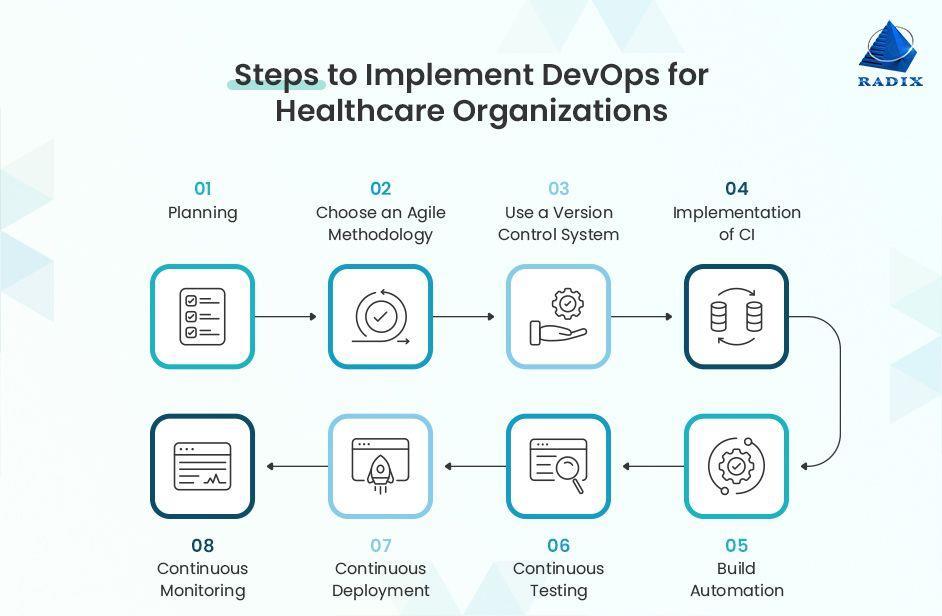
Fig.1StepstoimplementDevOpsforhealthcareorganizations
Forexample,wherethereisfrequentdevelopment,anddailydeployment,itisclearthatmanualtestingislaggingbehind whichresultsintimeandefficiencycomplicationswithintheSDLC.Theconsequencesofsoftwareunreliabilityinanyfacet of healthcare comprise significant risks. Healthcare applications involve personal and private data of the patient, help support efficient clinical decisions regarding the patient, and interact with different medical equipment and software systems.Anysoftwaredefectorfailureiscritical,andthatcanleadtolossofpatientlives,leakageofpatientinformation andheavyfinesfornon-adherencetocomplianceandlegalstandardssuchastheHIPAAandGDPRamongothers.
Thisisbecausehealthcaresoftwareistotallyunlikesoftwareinmanyotherindustriesandisexpectedtodeliverextremely highlevelsofachievedreliabilityforallthosewhowillcometotrustit–patients,careproviders,andgovernmentagencies [2]. Therefore, to attain the higher degree of reliability, sophisticated QA procedures should be integrated to address identifiedrisksasearlyaspossibleinthedevelopmentcycle,butmanualtestingdoesnotalwaysmeettheseneeds.Being oneofthemostpopularplatformsinhealthcaretoday,SalesforcehassomeinherentdilemmasforQAbecauseofitshigh flexibility and interconnectedness. Revenue Medicare utilizes Salesforce for patient relationship management, remote consultationortelehealthandmedicaldataanalysistonamebutafew.
Each implementation is most commonly unique to the needs of that individual organization and as such there are numerousdifferencesbetweentheworkflows,integrationsandconfiguration.Thiscustomizationaddstothechallengeof testingaspervarioususes,variousdatafeedsandhowdifferentusersemploythesystem.Testinginsuchcircumstances becomes even more difficult with respect to manual testing since a significant amount of planning, testing, and maintenance is needed to cover all the possible configurations. Testing in salesforce environments is very complex, especiallywhenusingtop-endtoendtesting,third-partyintegrations,APIs,andcustomizedworkflows.
Maintainingdataintegrityandthesmoothinteroperabilityofthesecomponentsisaboringandtime-consumingtaskwhen donebyhand.Anotherchallengeisregressiontestinginwhichweconfirmthatnewchangesdonotharmotherfeaturesof thesystem.
Salesforce is updated quite often and healthcare organizations that use it requires constant innovation; if this is mechanized then manual regression testing becomes inefficiently costly; therefore, either there will be gaps in test

International Research Journal of Engineering and Technology (IRJET) e-ISSN:2395-0056
Volume: 12 Issue: 01 | Jan 2025 www.irjet.net p-ISSN:2395-0072
coverage or a delay in deployment [3]. Addressing these challenges next indicates that the existing QA processes in healthcare DevOps should be more efficient and dependable. Despite all the advantages of such an approach, the timetested methods of a manual deliverance cannot suffice the demands and modernity of higher level and regulating complianthealthcaresoftware.
These shortcomings signify the inviting trend of adopting automated as well as AI-based strategies in organizations to reachhigherlevelsofsoftwarereliabilityandbettertestcoverage.Addressingthesechallengesisthereforeparamountfor enablingthesuccessfuldeliveryofsafesecureandeffectivehealthcaresolutionsthatwouldsuittheneedsofpatientsand clinicalcareproviders.
AI is revolutionising QA in DevOps to a great extent due to its capabilities of coming up with new concepts concerning automation in fields such as health where such components as reliability, precision and compliance are of paramount importance. As software systems become critical to healthcare organizations and outcomes for patients, artificial intelligenceisfillingthegaps,optimizingcoverage,anddrivinggreateraccuracy.
From using Machine Learning for a better understanding of testing patterns to using tools that are especially suited for automatedtestinginDevOpsplatforms,AIgiveshealthcareorganizationsthetoolstorespondtotheconstantincreasing expectationsofsoftwarereliabilityandsafety.Thesetechnologiesarenotonlyidealtobeintegratedbutessentialsincethe outcomesofthehealthcaresoftwarearemoreprofound–livesandpatients’vitalinformationatrisk.
Predictive analytics, automating test generation, intelligent anomaly detection have been made possible by machine learning making it central to the modern-day QA process. One of them is testing pattern discovery, which serves to find patternsintestcases,logs,coderepositories,anddefectreportsofaproject[4]
Whentrainedonthisdata,machinelearningmodelsarecapableofpredictingportionsofthisapplicationthatarelikelyto harbor defects thus directing the efforts of QA teams on a singular area For instance, an auto-learning model might observethatsomecomponentorsomefunctionsaremostpronetofailurefollowinganupdate,makingitpossibleforQA toscantheseregions.Inadditiontoenhancingcoverage,thispredictivecapabilitycanalsominimizeresourceduplication, timewasted,andthegapwherecrucialdefectsescapeanytests.
Inadditiontopatternmatching,machinelearningoutperformsconventionaltechniquesbyidentifyingabnormalprogram characteristics.ConventionalQAapproachesmayinvolvespecifiedrulesandcanoftenberigidindetectingerrorsthatcan bepotentiallyfatalinhighlydynamicapplicationssuchashealthcareapplicationswithintensivedataprocesschains.
AI on the other hand, can always observe and analyze application behaviour and understand which patterns are appropriate and which are not, without having to be coded. For instance, an AI system that oversees a healthcare applicationwillthenidentifyanyirregularitiesconcerningdatainput/outputordataprocessingthatmaypointtohidden problemssuchasintegrationtroubles,dataalteration,orsecurityinvasion.Thus,bydetectingtheseanomaliesinreal-time AIimprovesthereliabilityofQAtasksincreasingthereliabilityofsoftwareevenasitisupdated.
OtheraspectsofAIareusefulalsoingeneratingtestcasesthistaskisusuallycarriedoutmanuallyanditisquitetedious and prone to errors [5]. Application behavior is learned while concurrent user activity, together with historical defects, trainingdatatoderivetestcasesthattraversecriticalpathsandutilizeedgecases.
Unlikewithmanualgenerationoftestcaseswherethetestcasesarefixedwithnoabilitytoupdatethemtoreflectchanges in the application, these tests cases are automatically generated and are always relevant. That is especially important withinhealthcareDevOpssinceapplicationsoftenneedupdatesduetothechangingregulationsornewfeatures.AImostly contributestoautomaticallycreatingatestcaseaswellastakingalotlesstimetodosoItalsomakestheQAprocessmuch efficientandeffectiveatthesametime.
Anotherfieldareregression testswhichformthebasisoftheQA processpresents anotherarea ofgreatsuccesswithAI. Allhealthcareapplicationsshouldbecheckedeverytimethereisanupdateoncodestobesurethatthenewchangemay not have a detrimental effect on the other features [6]. However, the large number of test cases that are needed for performingcompleteregressiontestingisachallengethateasytoovercomebymanualQAteams.

International Research Journal of Engineering and Technology (IRJET) e-ISSN:2395-0056
Volume: 12 Issue: 01 | Jan 2025 www.irjet.net p-ISSN:2395-0072
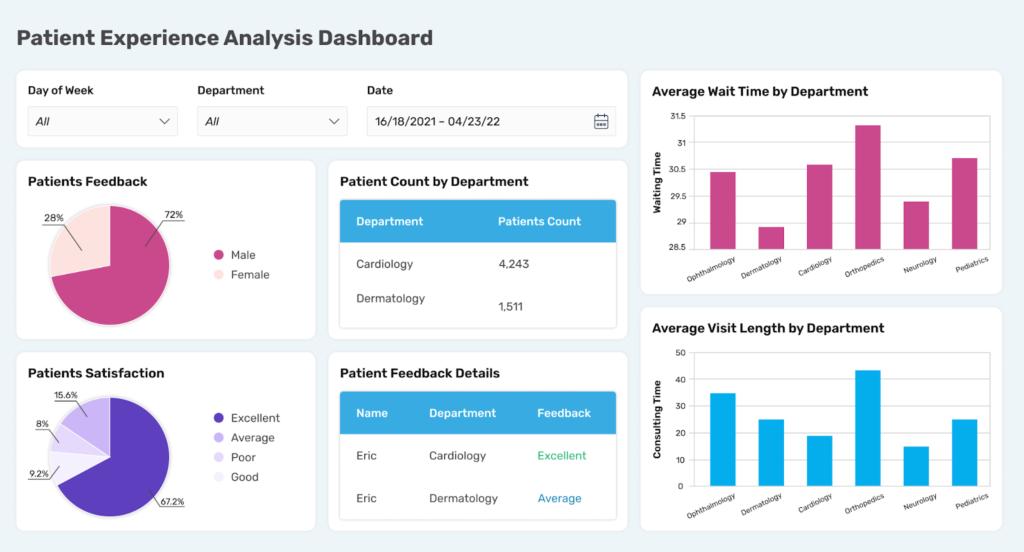
Automatic test case generators solve this problem in that they automatically filter and prioritize the set of test cases.Itmeansthat,basedonthechangesincodeandthedependencytreeaswellasthehistoricaldataondefectsfound, AI can trace which parts of the application will most likely be impacted by updates, which areas the QA team needs to focuson.Thishasthebenefitofsavingmuchtimeandtestingeffortwhileatthesametimeretainingmuchassurancethat regressiontestingisrevealingalltheproblems,withlessincreaseintestingexpenditurethanbroadnon-targetedtests.
The testing scenarios that are unique to the healthcare sector give a vivid outlook at how the AI based solutions can outcompete the traditional QA issues [7] The application of Salesforce in the healthcare industry has been mainly for patient management and reference, analytics. It has reciprocity high degree of configuration This is because each healthcare organization adapts selling and marketing functions using Salesforce according to different requirements and needswhiletheycreatevarioussellingprocessesandintegrationneeds,andconfigurations.
Theabove-discussedAI-driventoolcanbeusedtofullyautomateend-to-endtesthandlingeverykindofcustomizationin Salesforcewhereallcomponentsadapttoeachotherandworkuniquely.Forinstance,AIcanconfirmwhetherintegration betweenSalesforcewithEHRsystemsortelehealthisseamlessorifthereareconcernsoccasionedbydisparityindataor disruption in workflow. This adaptability helps guarantee that healthcare implementations of Salesforce will always be reliableandfollowtheconventionalstandardsofcompliance.
AIinhealthcareDevOpsis backed bya range of toolsandframeworksthatareavailableand embraced bythe model for automated testing.For example, Seleniumis an open-source automated testing tool for web applications to whichthe AI solution has been added. These improvements allow Selenium to work with dynamic web elements, recover tests, and change its operation in reaction to shifts in application behavior, which makes it effective at supporting health care applicationsthatareinastateofflux.

International Research Journal of Engineering and Technology (IRJET) e-ISSN:2395-0056
Volume: 12 Issue: 01 | Jan 2025 www.irjet.net p-ISSN:2395-0072
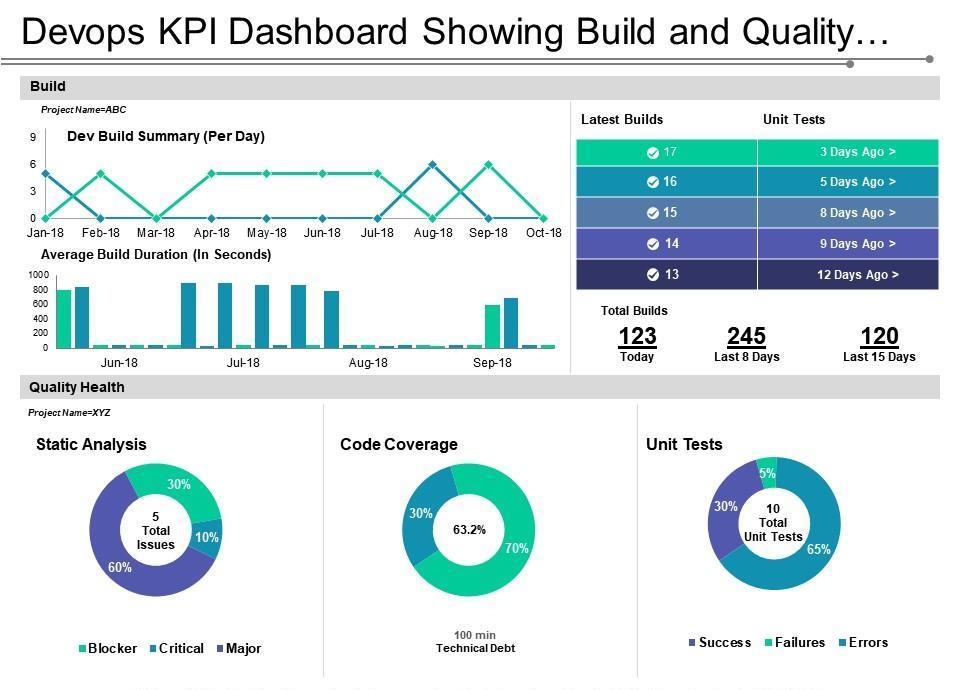
AnothertoolthatisTest.aithathelpsintestingthemobileapplication,toreducetheuseofmanpowerusingthemachine learning concept in functional and regression testing for healthcare mobile platforms. These tools are compatible with CI/CDstreams,whichmakeQAforDevOpsoperateinalignmentwithspeed.
TensorFlowandPyTorchalsohaveacriticalrolesincetheyprovideopportunitiesfordevelopinguniquemachinelearning QA models. They help to train AI models on data relevant to a particular healthcare organization and get ready to overcomespecificdifficultiesofhealthcaresoftwaretesting[8].Forexample,TensorFlow-basedmodelcouldbetrainedto detect errors in EHR data processing or to check whether data processing corresponds to the regulation, such as HIPAA and GDPR. Such customized solutions cannot be addressed by traditional testing tools which are relatively inferior in accuracyandflexibilitythanthelatter,asanaspectneededinthehealthcarefield.
ThatiswhyworthwhiletoconsideralltheopportunitiesthatAI-drivenQAoffersatthestageofhealthcareDevOps.AIalso improves the reporting and analysis in testing performed and provides QA team necessary data to investigate the real causesofdefectsandadjusttheirapproaches.Itmeansthattheproblemscanbesolvedimmediately,whilemanypotential defectsarenotallowedtogofurthertothenextstagesandpossiblyharmthepatientsordegradedataquality.
Furthermore,AI-basedapplicationshelpcoordinateQA,development,andoperationssincetheyshareoneworkingmodel fortestingstatus andoutcomes.Basically,thisisaperfectmatchtotheDevOpsfundamentalsthatentail collaborationin thedevelopmentofaproductandsupportingincreasedspeed,butwithstabilityofthedeliveryprocesses.
Nevertheless, it is not easy to execute the application of AI-based QA in healthcare DevOps. The main limitation of deployingtheseoptimizationmodelsisthattheAIalgorithmisonlyasgoodasthequalityandtheamountof datafedinto it for training. Moreover, using patient’s data for training AI models to improve patient outcomes while protecting patients’privacyanddatasecurityischallengingbyethicalandlegalmeans.

International Research Journal of Engineering and Technology (IRJET) e-ISSN:2395-0056
Volume: 12 Issue: 01 | Jan 2025 www.irjet.net p-ISSN:2395-0072
Theadoptionof AIsolutionswithinDevOps processes alsomeansthatsolutionshaveto be managedto avoid disrupting existingprocessesandculture.However,thesearesomeofthechallengesassociatedwithAIdrivenQA,nonetheless,the advantages of having AI to enhance the QA of the software product outweigh the challenges in that; they enable high reliabilityofthesoftwareproduct;reducedtimefortestingcyclesandscalability.
DevOps quality assurance in healthcare has been greatly impacted by AI solutions as a means of overcoming the weaknesses of the classical approaches to testing. With the help of machine learning, NLP, and other innovative testing tools, AI provides the features that are necessary for accelerated, qualitative, and safe testing and QA matching the requirementsofhealthcaresoftware.
From automatically generating test cases to improve regression testing and identify abnormalities, there are precise AIbasedsolutionsavailabletohealthcareorganizations,soitispossibletoprovidesafe,compliant,andinnovativesolutions andsoftware.Asstatedbefore,asthehealthcareapplicationsbecomeincreasinglycomplicated,usingAI-poweredQAwill becomecrucialtothesuccessofDevOpsinhighlyspecializedfields.
Salesforce has a very significant position in the healthcare industry acting as a competitive tool for handling patients, organizing tasks and smoothly interacting with the EHR systems. Hence its practicality and ability to address multiple healthcare organization’s requirements makes for ideal solutions; however, the very same factors make it a nightmare whenitcomestotesting.
TherequirementsoftestingSalesforcewhichincludetestingintegrations,testingworkflows,testingdataconsistencyand integrityofcustomconfigurations,amongothersisacumbersome,tiresomeanderrorproneactivitywhendonemanually [9]. However, now with the help of artificial intelligence (AI), testing of Salesforce scenarios is changing its approach, allowingautomatization,scalabilityandaccuracywhichwerebeyondthepossibilitybefore.
Thefirstthingthat needsto beknownwhileautomatingtestscenariosinSalesforceiswhatspecificitiesof this platform aretobemet.Whilemostsoftwareapplicationsarerelativelystatic,comparedtothem,Salesforceenvironmentsarevery complex since it is constantly updated, contain custom applications, and has complex interaction with other third-party tools. Such characteristics render the classic, passive test scripts invalid, as they are unable to change in line with the switchesinworkflowsorconfigurations.
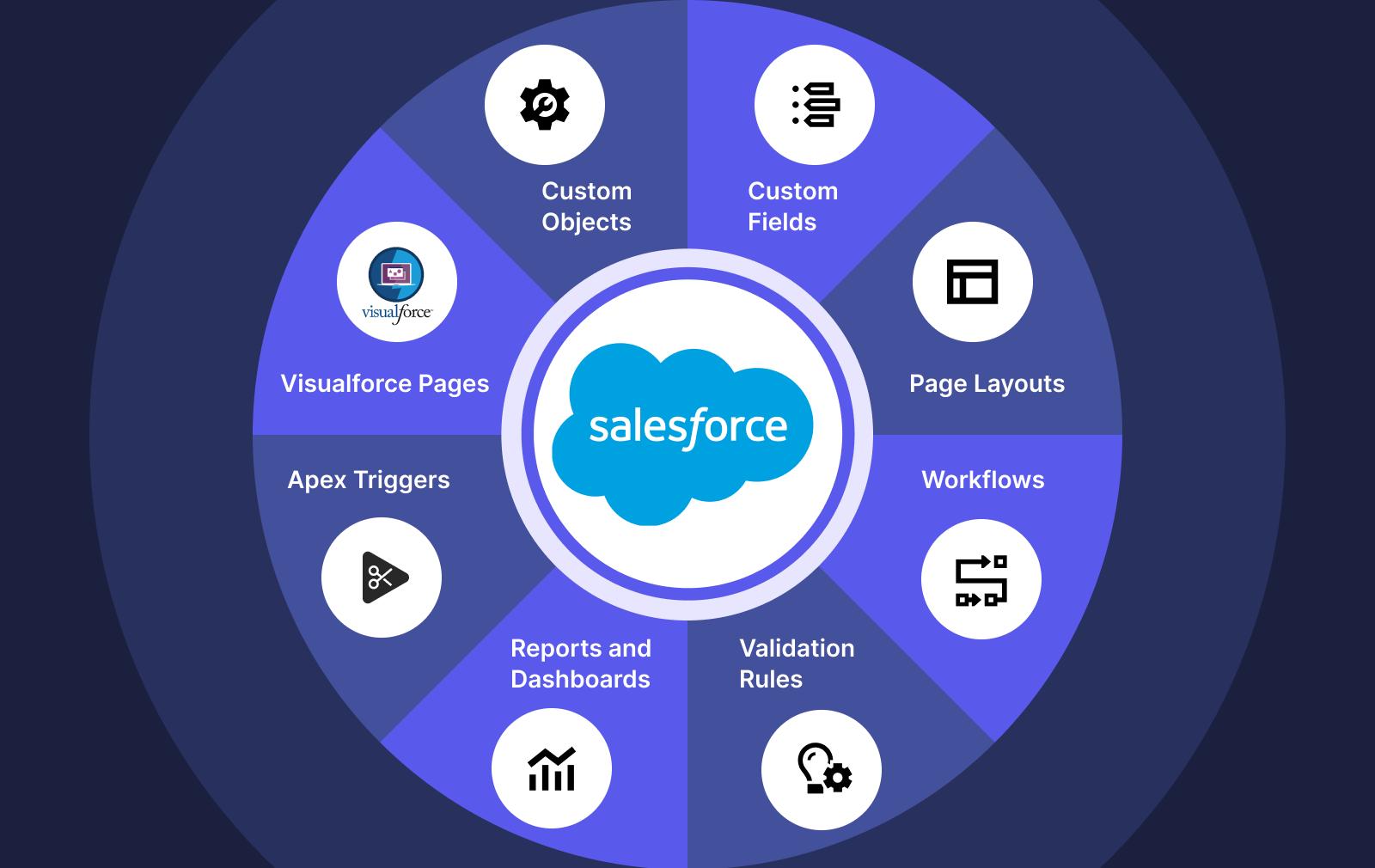

International Research Journal of Engineering and Technology (IRJET) e-ISSN:2395-0056
Volume: 12 Issue: 01 | Jan 2025 www.irjet.net p-ISSN:2395-0072
For instance, some of the ways healthcare organization can use salesforce include: Patient referrals, a mechanism for tracking of care plans, and compatibility with telehealth systems. Every of these functionalities is based on specific predefinedworkflowsanddatacorrespondenceswhichhavetobecarefullyvalidated.Additionally,organisationsthatrely on salesforce update their platform at least twice a year with new features and functionalities that can sometimes cause chaos to prior workflows. This makes regressive testing crucial since updates might damage the system in one way or another[10].
These problems are well solved by AI-based solutions focusing on the effective implementation of end-to-end testing on Salesforce landscapes. In this case, end-to-end testing covers all features of a Salesforce implementation, from the frontend,allthewaytotheback-end.
TheothercategoriesofAI-basedtoolsusemachinelearningtechniquestoscantheapplicationprocessinglogic,recognize dependencies,andcreateequivalenttestcasesthatreflectauser’sinteractionwithanapplication.Forinstance,thesystem can mimic a healthcare provider interacting with a Salesforce interface especially designed for providers to book an appointment,modifytherecordsandissueareferral.Thesearebetterthanthemanualtestcasesbecausetheyarefaster intermsofexecutionandtheydonotcontainhumanerror.
ThemostimportantfactorinSalesforcetestingisAI’scapabilitytomanagechangesintheenvironment.AI-basedsolutions are different from traditional automation tools that embed script-based instructions by directly writing the code for test casesandscripts[11].Thisisknownasself-healingwhereoncethetestscriptsarecreatedremainvalidevenwhenthere isalotofchangestotheapplication.
For instance, if a healthcare organization adjusts its Salesforce setting to include a new telehealth feature, the AI system will identify the change and adapt the tested cases necessary for testing the enhanced feature. This lessens the maintenance overhead that comes with conventional automation and guarantees that testing adapts with the fastchangingHealthcareSoftware.
Regression testing is another important area where solutions with the use of artificial intelligence out-perform in the Salesforce spaces. Regression testing means retesting that has been conducted earlier to check that new code changes, additions, new modifications, etc do not contain new errors to the current system. In healthcare field, the regression testingplaysprominentrolebecauseeventheminordisturbancesinthesoftwareapplicationanditsfunctionalitiescould leadtoaseriousimpact,includingthedelayinpatienttreatmentorinaccuratepatientdata.
But executing that number of test cases necessary for performing the regression testing is oftentimes impossible for the manual QA teams. In this regard, AI-driven tools overcome this challenge by determining how best to schedule and prioritizeregressiontestcasesanditseffects.
AI systems examine changes to the code and the application’s dependencies, and the past defect history to determine whereintheSalesforceimplementationchangeismostlikelytohaveanimpact.Forinstance,ifahealthcareorganization makeschangesintheSalesforceplatforminordertoimprovetheschedulingofthepatients,thentheAIsystemwillfocus ontestcasesthatareassociatedwiththeappointmentmakingandcalendarsystem,andnotificationsoftheslots.
Thistargetedapproachsavesalottimeandeffortneededfortheregressiontestingwhileatthesametimegivingalotof confidenceonthesoftware.Inaddition,AI-driventestingcanalsosimultaneouslyrunaregressiontestandthereforecuts downthetotalcycletimerequiredfortestingandthesubsequentdeploymentofupdates.
Perhaps the greatest benefit is that AI-driven Salesforce testing can prove the complexity of interconnections that has become the hallmark of healthcare software environments. While as a rule, Salesforce acts as an integrator and works together with EHR systems, billing platforms, or patient communication tools [12]. To do this, it is crucial that these integrationsworkcorrectlytoallowefficientandreliableintegrationbetweentasksandsystems
ItispossibletouseAIintestinghowdataisflowingbetweenSalesforceandintegratedsystemstorevealinconsistencies andtestallcomponentswithintheenvironment[13].Forinstance,anAIsystemmaycheckthatinformationenteredinto theEHRsystemgetsproperlytransformedtoSalesforcetomeetrequirementsofdataprivacylaws,forexample,HIPAA.
Performance testing is another area in which AI augments Salesforce testing since it focuses on instilling the system’s capabilityintermsofloadandusageprofiles.Workloadsinapplicationsofinhealthcareorganizationsareusuallyvariable just like during the time of scheduling for patients or during the period vaccines where administered. These types of

International Research Journal of Engineering and Technology (IRJET) e-ISSN:2395-0056
Volume: 12 Issue: 01 | Jan 2025 www.irjet.net p-ISSN:2395-0072
scenarios can be replicated using the AI centered performance testing tools to discover the POVs and slew of recommendationsthatcanmaketheimplementationofSalesforcefastandefficientinitsresponse.
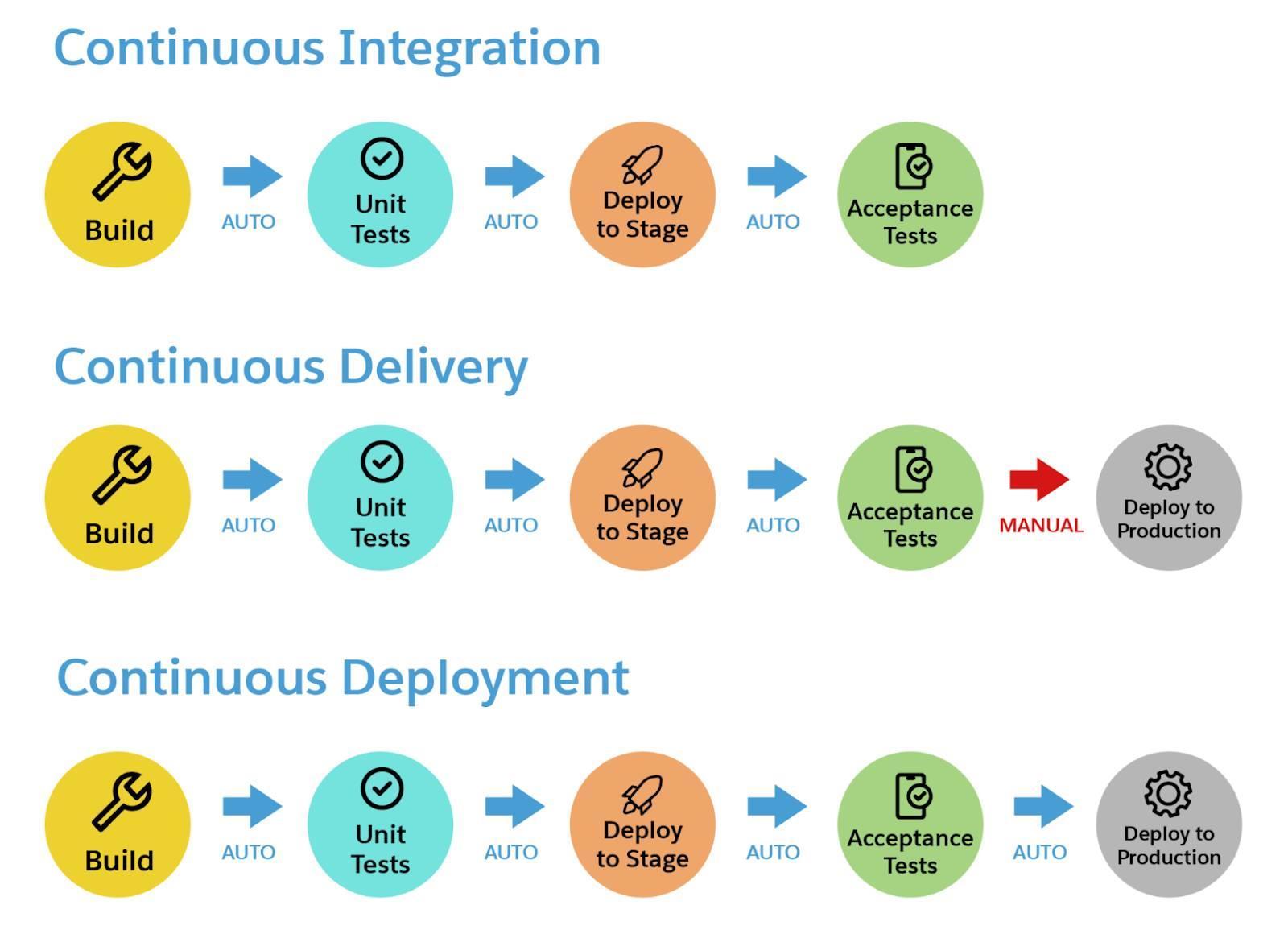
Forinstance,anAIitcouldemulatethousandsofusersloggingintoapatientportalthatconnectstosalesforceatthesame timeandtracktheareaswherethesystemmightstallorcrashandthenreportonthesepossibleproblems.
The use of AI solutions in testing for Salesforce within health care has been further backed by the increase of integrated solutions and platforms. Select tools like Copado Robotic testing and Provar are explicitly built for Salesforce environments that provide AI features for test case creation, running, as well as updating. They incorporate with the DevOps pipeline that means future testing can be continuous and the QA processes could correspond to the fast-track environmentofhealthcaresoftwaredevelopment.
In the same manner, some other testing frameworks are TensorFlow and PyTorch, in which organizations can create specific machinelearningmodelstoadapttothespecificSalesforceenvironment,somethingthatageneraltestingtoolis incapableofoffering.
There are some issues to be aware of when adopting AI testing in healthcare to Salesforce. The models developed by AI algorithmsareonlyasgoodasthedatathatisusedtotrainthem,thusfororganizationsthatmaynothavelotsoftesting dataoraccesstosuchdatathiscanbeabigdrawback.Privacyisanotherissuethatisalwaysofconcernandevenmoreso inhealthcareconsumptionsincepatientsdataisclassedassensitiveinformation
What happens to data used in AI learning models must also be regulated closely with adherence of ethical and legal principles regarding patients’ information [14]. In addition, the implementation of new AI-based solutions in the QA processes must be carried out with the necessary preparation and introduction of change management tools to promote thebestresultsoftheautomationoftheQAprocess.
DifferentcharacteristicsofSalesforceplatformmaketestingofthissystemchallenging,includinghighcustomizationlevel, complexityandmissioncriticalityforhealthcareorganizations,butAItechniqueshelptoovercomemanychallengesand to change the completeness of healthcare Salesforce testing solutions. With end-to-end testing, intelligent regression

International Research Journal of Engineering and Technology (IRJET) e-ISSN:2395-0056
Volume: 12 Issue: 01 | Jan 2025 www.irjet.net p-ISSN:2395-0072
testing, and adoption for validation of integrations, AI introduces enhanced levels of software reliability, scalability, and efficientoperationfororganisationswithinthehealthcaresegment.
Thispaperthereforesuggeststhat,throughtheadoptionoftheAItechnology,maximumSalesforcequalityandcompliance can be attained to the advantage of patient care and overall organisational performance in the healthcare setting. With such increasing pressure being placed on healthcare software, AI-driven testing will become a critical factor in guaranteeingtheongoingcredibilityofSalesforceastheplatformfordeliveringnewhealthcaresolutions.
FromtheapplicationsofqualityassuranceandtestingsolutionspoweredbyAIinhealthcareDevOps,itcanidentifythat these applications can bring about better effectiveness, precision and credibility truly. The adoption of AI on the automation of testing procedures significantly shortens testing cycles reducing manual input by as much as 70%. Previously manual and error prone, end-to-end testing scenarios of actual end user engagements with healthcare SW platformssuchasSalesforceareprocessedthroughAIbasedtoolsleveragingonactualusecaseinteractions.
This also guarantees efficient check on the integration of the various workflows as well as reduction on possibility of inaccurate data that may affect patients. Moreover, regression testing facilitated by machine learning enhances test prioritization so that those healthcare organizations that undergo changes can target the most severe areas. The study shows that AI always detects and fixes problems before they occur and much faster than other methods, which can help avoiddisruptionstosoftwareimplementationsandservices.
Thediscussionbringsoutfurtherimplicationsofthesefindingstothebiggerpicture,inexercisingtheneedtoinnovatein using artificial intelligence in healthcare software development. Whereas AI may take time away from testing, the use of technology to streamline such loopholes moves the process forward faster and delivers better quality and credible healthcareapplications.Thisisespeciallyimportantinafieldwheresoftware-relatedissuesposeariskofcausingdeath.
For instance, in Salesforce environments, AI testing helps to maintain the interaction of patient data, appointment, and billing processes and compliancy with norms such as the HIPAA. Nevertheless, there are still concerns which include; securityofdataandthecapitalneededtoinstallAIsystems[15].PatientdatathatistobeusedindevelopingtheAImust alsobeanonymousandmustmeetveryhighethicalstandardsofprivacy.
Furthermore,movingtoAI-basedQAshouldbewellthoughtoutandplannedforregardingtheworkforce,andcompany’s long-termgoals.Nevertheless,theuseofAIwhenitcomestoqualityassuranceautomationisnotwithoutahitch,butthe advantages massively overpower the drawbacks to provide a way to deliver improved, efficient, and useful high-quality healthcare software systems. Taken together, the results highlight AI as encompassing an iconic status in the emerging frameworkfortheapplicationoftheDevOpsconcepttotheworldofhealthcare.
Through innovation in quality assurance for application in DevOps in matters concerning healthcare, IT technology especiallyAI-drivenautomationisrevolutionizingqualityassurance.Thispaperhasalsoshownamarkedimprovementin the integration of AI into Salesforce-specific test cases, specifically end-to-end and regression testing. Machine education andself-diagnosingfunctionsarebuilt-intoallowtestautomationtoself-rectifyandhencetodealwithtestingforcomplex integrationandmorefrequentchangesintheworkprocess.
Stillthreats,likedataprivacyorimplementationcosts,stillpersist,buttherationaleoftheAI-drivenQAismoreofavalue inthelongterm.Inshortertestingcycles,andfeweropportunitiesformistakes,AIassistsinguaranteeingthehealthcare software’s reliability and compliance with proper care practices, which leads to improved patient health. This research also highlights the importance of AI in fuelling invention, optimisation and optimisation of healthcare DevOps. This is because as the industry advances, the use of the application of Artificial intelligence solution will be compulsory for the organizationsthatwanttodeliverefficient,consistent,andsecurehealthcaresoftwaresolutions.
[1] V.V.Boda,"FasterHealthcareAppswithDevOps:ReducingTimetoMarket," MZComputingJournal,vol.3,no.2,Sep. 2022.[Online].Available:http://mzjournal.com/index.php/MZCJ/article/view/375/381

International Research Journal of Engineering and Technology (IRJET) e-ISSN:2395-0056
Volume: 12 Issue: 01 | Jan 2025 www.irjet.net p-ISSN:2395-0072
[2] V.V.Boda,"RunningHealthcareSystemsSmoothly:DevOpsTipsandTricksYouCanUse," MZComputingJournal,vol. 2,no.2,Aug.2021.[Online].Available:http://mzjournal.com/index.php/MZCJ/article/view/373/379
[3] V.V.BodaandH.Allam,"TheAIRevolutioninHealthcareDevOps:WhatYouNeedtoKnow," InnovativeEngineering Sciences Journal, vol. 4, no. 1, Oct. 2024. [Online]. Available: https://innovatescipublishers.com/index.php/IESJ/article/view/351/373
[4] V.V.Boda,"BringingBlockchaintoHealthcare:HowDevOpsCanLeadtheWay," MZComputingJournal,vol.5, no.1, Mar.2024.[Online].Available:http://mzjournal.com/index.php/MZCJ/article/view/377/383
[5] H. Sartaj, S. Ali, and J. M. Gjøby, "REST API Testing in DevOps: A Study on an Evolving Healthcare IoT Application," arXivpreprint,Oct.2024.[Online].Available:https://doi.org/10.48550/arXiv.2410.12547
[6] G. Areo, "Faster Healthcare Apps with DevOps: Reducing Time to Market," 2022. [Online]. Available: https://www.researchgate.net/profile/GideonAreo/publication/386461299_Faster_Healthcare_Apps_with_DevOps_Reducing_Time_to_Market/links/67521a92ad1 0b614ef3180c4/Faster-Healthcare-Apps-with-DevOps-Reducing-Time-to-Market.pdf
[7] Z.Asimiyu,"OptimizingDevOpsforHealthcareIT:BestPracticesforSeamlessOperations,"2021.[Online].Available: https://www.researchgate.net/profile/ZainabAsimiyu/publication/386532536_Optimizing_DevOps_for_Healthcare_IT_Best_Practices_for_Seamless_Operations/lin ks/6754210eea30b90cbc639dd6/Optimizing-DevOps-for-Healthcare-IT-Best-Practices-for-Seamless-Operations.pdf
[8] O. A. Akinola, O. Oyerinde, and A. Akinola, "Implementation of DevOps in Healthcare Systems," Journal of Artificial Intelligence General Science (JAIGS), vol. 2, no. 1, pp. 217–227, Mar. 2024. [Online]. Available: https://doi.org/10.60087/jaigs.v2i1.108
[9] B. C. Vadde and V. B. Munagandla, "Integrating AI-Driven Continuous Testing in DevOps for Enhanced Software Quality," Revista de Inteligencia Artificial en Medicina, vol. 14, no. 1, pp. 505–513, Oct. 2023. [Online]. Available: http://redcrevistas.com/index.php/Revista/article/view/174/197
[10] O. Akinola, O. Oyerinde, and A. Akinola, "Evaluating the Impact of DevOps Practice in the US Health Care Systems," Journal of Knowledge Learning and Science Technology, vol. 2, no. 1, pp. 158–162, 2023. [Online]. Available: https://doi.org/10.60087/jklst.vol2.n1.p162
[11] T. K. Adenekan, "Mastering Healthcare App Deployment: Leveraging DevOps for Faster Time to Market," 2021. [Online]. Available: https://www.researchgate.net/profile/TobilobaAdenekan/publication/386507852_Mastering_Healthcare_App_Deployment_Leveraging_DevOps_for_Faster_Time_to_ Market/links/675392b1ef2dc67228adeab3/Mastering-Healthcare-App-Deployment-Leveraging-DevOps-for-FasterTime-to-Market.pdf
[12] N. Rosal, "AI-Powered Testing Tools in DevOps," 2023. [Online]. Available: https://www.researchgate.net/profile/Research-Publication/publication/383425177_AIPowered_Testing_Tools_in_DevOps/links/66ccd20175613475fe7f4748/AI-Powered-Testing-Tools-in-DevOps.pdf
[13] V. V. Boda and J. Immaneni, "Optimizing CI/CD in Healthcare: Tried and True Techniques," Innovative Computer Sciences Journal, vol. 8, no. 1, Jun. 2022. [Online]. Available: https://innovatescipublishers.com/index.php/ICSJ/article/view/345
[14] P.S.S.Preetham,"ASystematicApproachofIntroducingTestAutomationinaDevOpsEnvironmentataLarge-scale Software Development Organization: A Case Study at Scania." [Online]. Available: https://www.divaportal.org/smash/get/diva2:1918625/FULLTEXT01.pdf
[15] U. Anand, "Transforming Healthcare: DevOps, Visualization, and Microservices," Journal Homepage: http://www.ijmra.us, vol. 13, no. 11, Nov. 2023. [Online]. Available: https://www.researchgate.net/profile/UttamAnand4/publication/374943834_TransformingHealthcare_DevOps_Visualization_andMicroservices/links/65d4e0f8c3b52a 1170e760ca/TransformingHealthcare-DevOps-Visualization-andMicroservices.pdf